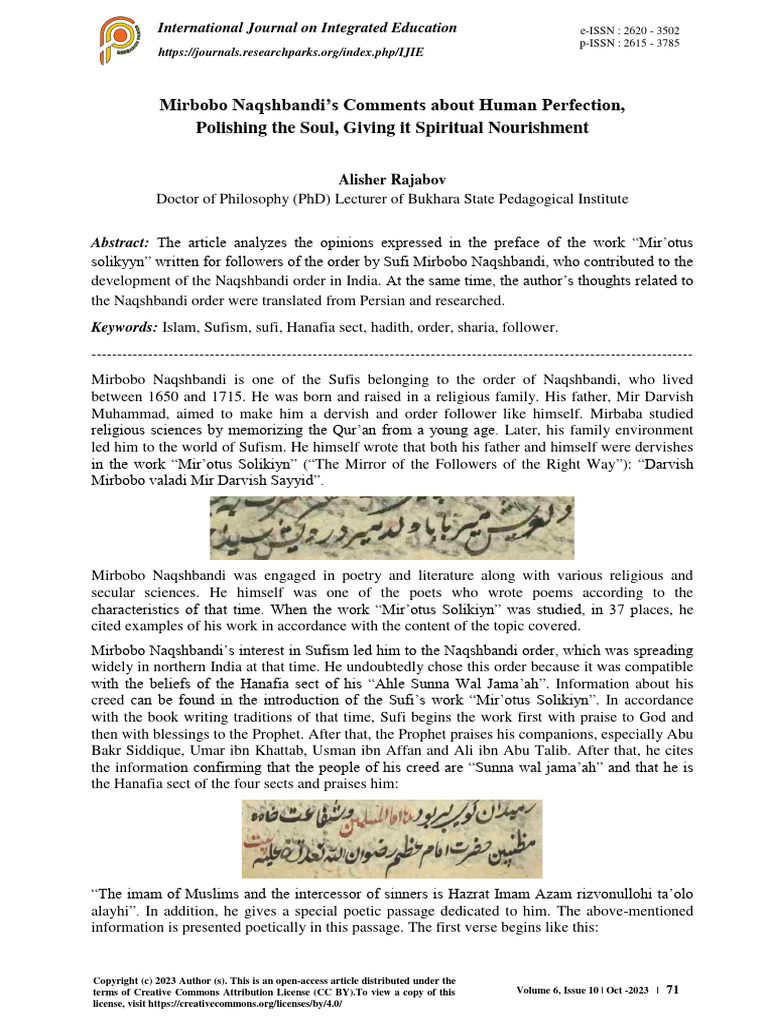In exploring the intricate dimensions of Bahá’í teachings, one is invariably led to the concept of “Polishing the Soul,” a metaphorical expression that encapsulates the spiritual discipline of daily prayer. This practice is not merely an obligation, but a profound engagement with the divine, offering a path toward spiritual edification and moral refinement. The act of prayer serves as a bridge between the material and the spiritual realms, drawing further interest due to its transformative potential and the allure of its simplicity amid complexity.
At the heart of Bahá’í spirituality lies the notion that the soul undergoes a continuous process of evolution. Just as a diamond must be polished to reveal its brilliance, the soul, too, requires refinement through sincere and dedicated prayer. The process of polishing the soul involves more than repetitive recitation; it demands a heartfelt connection, an engagement with the essence of the messages conveyed through prayer. The Bahá’í faith outlines that prayer is not simply a transactional discourse with the divine but a holistic practice meant to shape one’s character, values, and understanding.
To understand the implications of daily prayer within the Bahá’í framework, one must first consider the types of prayers prescribed. Bahá’ís are encouraged to engage in obligatory prayers, which serve as critical touchpoints in their spiritual practice. These prayers—short, medium, and long—vary not just in length but also in their thematic focus. Each type is infused with profound, esoteric meanings that beckon adherents to delve deeper into their spiritual essence. The frequency and manner in which one engages with these prayers can lead to varying levels of spiritual attunement, with the ultimate aim of fostering an intimate relationship with God.
Furthermore, the significance of prayer extends to communal aspects that foster unity and solidarity among believers. Group prayers are not mere rituals but rather collective experiences that kindle communal bonds. The collective recitation of prayers stands as a testament to the Bahá’í principle of oneness, where individuals come together to elevate their spiritual consciousness. This communal aspect invites deeper reflections on the interconnectedness of humanity—a defining principle of the Bahá’í teachings.
The transformative potential of daily prayer also finds its roots in the psychological benefits it bestows upon practitioners. Engaging in prayer allows individuals to achieve introspective clarity, providing a sanctuary for self-reflection. The consistent practice encourages a space for individuals to identify and confront their shortcomings, thereby facilitating a journey towards self-improvement. In this context, prayer becomes therapeutic; it serves not only as a means of communicating with the divine but also as an opportunity for catharsis and personal growth.
The act of prayer within the Bahá’í faith also underscores the importance of intention. The power of prayer is magnified through sincerity and mindfulness, cultivating a framework where aspirations align harmoniously with moral principles. When performed with genuine intent, prayer transcends the act itself, becoming a rich tapestry of faith, hope, and self-inquiry. The inclination to polish one’s soul is deeply rooted in the awareness of one’s potential, a salient theme within Bahá’í teachings that encourages individuals to strive for excellence.
The Bahá’í writings articulate a dynamic relationship between the individual and the divine, positing that prayer can both reflect and shape one’s inner reality. Each utterance carries the weight of one’s thoughts and aspirations, framing the narrative of one’s spiritual journey. The richer the emotional and intellectual engagement with the prayers, the more profound the transformation. This intrinsic link between prayer and the refinement of the soul invites practitioners to cultivate greater awareness of their thoughts, emotions, and actions, aligning them with the divine virtues that Bahá’í teachings exalt.
In navigating the practice of daily prayer, one may also contend with the challenges presented by contemporary life. The fast-paced nature of the modern world often leads to distractions and disengagement from spiritual practices. However, it is precisely in these moments that the discipline of prayer may prove most invaluable. By prioritizing regular prayer, individuals assert their autonomy over the distractions of the material world. The practice thus becomes an act of defiance against the chaos, a deliberate choice to nurture one’s spiritual life.
Moreover, the synthesis of personal and communal prayer illustrates the Bahá’í commitment to unity in diversity. Each individual’s prayer experience contributes to a larger mosaic of spiritual expression, emphasizing the variety of spiritual journeys within a unified framework. This interplay mirrors the Bahá’í vision of a world where individual identities harmoniously converge to enrich communal existence. Such an ethos resonates deeply, portraying prayer not just as a singular act but as a collective movement toward spiritual ascent.
Ultimately, the practice of daily prayer within the Bahá’í faith culminates in the notion of service to humanity. A polished soul is better equipped to enact positive change, emphasizing the interdependence between personal spiritual development and the betterment of society. The wisdom accrued through prayer empowers individuals to fulfill their responsibilities as global citizens, championing the ideals of peace, justice, and collective well-being. In this sense, polishing the soul through daily prayer becomes an imperative endeavor—not merely for self-betterment, but as a fundamental contribution to the upliftment of humanity as a whole.
In conclusion, Bahá’í teachings illuminate the invaluable practice of daily prayer as a means of polishing the soul. Through an intricate interplay of personal intention, communal engagement, and a commitment to moral excellence, prayer emerges as a vital component of spiritual life. As individuals navigate the complexities of existence, the disciplined practice of daily prayer remains a steadfast guide, leading them toward enlightenment, unity, and the ultimate realization of their divine potential.
